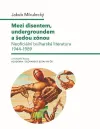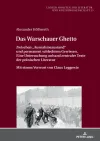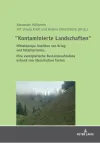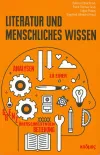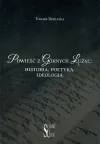Anarchie a evidence. Esej o psaní a vidění
- Slovanský ústav AV ČR, v. v. i.
- Academia
- Práce Slovanského ústavu AV ČR, Nová řada
- 978-80-86420-64-6 (Slovanský ústav)
- 978-80-200-3039-9 (Academia)

Modern literature does not create a literary work, but a process of writing that decomposes the work. Writing is anarchy. Writing causes that we constantly perceive what we want to express. Writing is evident, but it also encrypts a message. Writing endures as a record and evidence of what we want to express in words, as some persistence of the message in time. Modern poetic language strives to bring events closer to the limit of their representation and to show them in their becoming of events. Such language becomes
the language of motion, cinematographic, obvious and evident language that shows the world outside a window as the world that has become a part of our perspective on the world. Capturing the time of transformation becomes a matter of writing as permanent process of “becoming”. Modern literature is no longer just “speaking”, but also “writing”. It constantly alienates “speaking”. It fixes “speaking”, capturing its outside. If “speaking” disappears at the moment of silence, “writing” stays present, fixed on a paper, and we can come back to it any time to have a look at it. Writing is a permanent record – “permanent evidence”, it is an aperture (Gombrowicz) and an insight (Nabokov). In addition, this “permanent evidence” of outside, which writing is, is the essence of the film. The film tries to capture the experience of seeing – the camera sticks “seeing” in a form of a picture to the film material. The language of modern literature
has become the equivalence of the film image. The spoken has changed into the seen by means of writing. The language itself has become outer and has got materialized in the image. Modern artistic language has become pure evidence.
Recenze:
- Veronika Košnarová in: Česká literatura 68 (202), č. 4, s. 506 – 510.
Akt (ne)víry (Kramerius), Akt (ne)víry (ÚČL) - Libor Staněk: Psaní jako maso a krev. Anarchie a evidence Miroslava Olšovského in: A2, roč. 16, čís. 14, 2020, s. 5.
